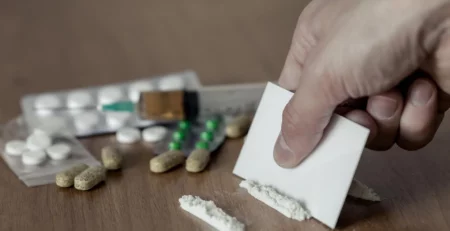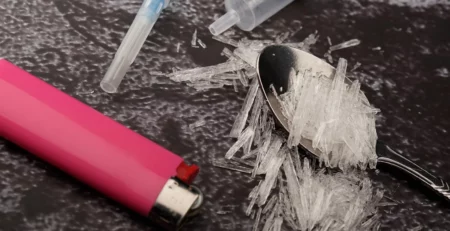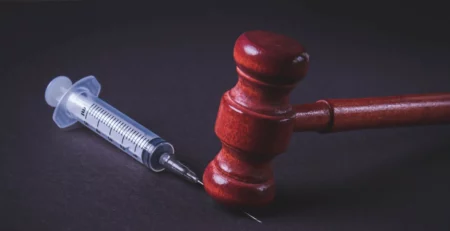MAT for Alcohol Abuse
Medication-Assisted Treatment for Alcohol Use Disorder at Icarus Nevada
Binge drinking is a common practice in modern drinking culture.
We have normalized drinking habits that are unhealthy from many perspectives, so much so that it has become a social and psychological crutch. Drinking is supposed to be a social lubricant, but in many cases, it is actually the main event.
The adverse effects of alcohol on your physical health are well established, but are usually discussed in the context of late-stage alcoholism or terrible hangovers. Unhealthy drinking habits like having several glasses of wine after work just to unwind are no longer deemed a problem.
But every additional drink has compound negative effects on one’s physical and mental fitness.
Alcohol addiction can make you feel powerless. But don’t worry, there’s hope. Admitting that you have a drinking problem is the first step to recovery and a sober life. Our experts at Icarus Behavioral Health Nevada offer the support you need to stop drinking. We identify your problem drinking patterns and use medication-assisted treatment (MAT) to address them.
Read on to learn how MAT for Alcohol Abuse can help with alcohol use disorders.
What is Medication-Assisted Treatment (MAT) for Alcohol Use Disorder (AUD)?

Drinking alcohol can quickly turn into an addiction. When this happens, you should seek professional help. Many addiction professionals recommend Medication-Assisted Treatment (MAT) to treat AUD symptoms. This form of treatment combines medication with behavioral therapy.
The U.S. Food and Drug Administration has approved three medications to overcome or reduce alcohol consumption. These FDA-approved drugs are found to be effective in increasing abstinence and include naltrexone, Acamprosate, and disulfiram.
Some off-label opioid use disorder medications are also used to treat alcohol dependency and include topiramate and ondansetron. However, it is important to consult your doctor before taking any medication to treat substance use disorders.
Get Effective Detox and Rehab Options at Icarus Nevada
How Does MAT for Alcohol Use Disorder Work?
MAT medications work wonders for alcohol use disorder treatment. Even then, only 4% of people with AUD seek this treatment. This substance use disorder treatment reduces alcohol craving in those trying to abstain.
Every medication in the recovery plan has a different role. However, to aid with alcohol withdrawal, they may do one of the following:
- Reduce alcohol craving
- Lower chances of going back to old habits
- Ease withdrawal symptoms that can lead to relapse
- Make drinking less enjoyable
Which Medications Can You Take to Treat Alcohol Use Disorder?

Medications for alcohol use disorder (AUD) often include three main options. While they don’t provide an instant cure, these FDA-approved medications can make a significant difference and include:
Acamprosate
Acamprosate, also known as Campral, is a prescription medication. It is prescribed to the individual who has quit drinking and wants to maintain sobriety. This medication helps prevent relapse.
How It Works
How acamprosate works isn’t fully clear, but it is found effective in restoring the normal function and balance of certain neurotransmitters, including GABA and glutamate. Chronic alcohol use disrupts this balance in the brain. This medication also helps reduce alcohol cravings.
When to Use Acamprosate
Acamprosate works best when started after a person has stopped drinking, though it can be taken while still drinking.
Who Should Avoid It
People with severe kidney disease should not take acamprosate. If you have a kidney-related health issue, let your doctor know before they prescribe you any drug for alcohol addiction treatment.
Get Accredited Treatment Programs at Icarus Nevada – Call Now!
Naltrexone
Naltrexone is a prescription medication. It is an antagonist of opioid receptors in the brain and is available in oral (Revia) and long-acting injectable (Vivitrol) formulations. Both of these formulations are prescribed for treating alcohol use disorder.
How Naltrexone Helps
Naltrexone helps reduce heavy alcohol consumption during a drinking episode and prevents relapse in those who have reduced or stopped drinking. It also prevents heavy alcohol consumption in case of relapse.
How It Works
It works by blocking opioid receptors in parts of the brain linked with reward or pleasure. As a result, it reduces the positive reinforcement that comes from alcohol consumption.
Important Precautions
Before starting long-acting injectable naltrexone, ensure you’re not allergic to the medication. Doctors prescribe a trial of oral naltrexone for this purpose. It helps them prevent intolerable side effects associated with this drug. Naltrexone can cause long-lasting opioid withdrawal symptoms. Therefore, people taking opioids shouldn’t use naltrexone in any form, whether oral or injectable naltrexone.
If you’ve been taking opioids, you should stop at least 7-10 days before starting naltrexone. Due to potential withdrawal symptoms, many healthcare professionals require a urine test to confirm opioids are out of your system before prescribing naltrexone. There are other pre-cautions to consider when taking naltrexone.
This drug can cause liver damage, so it’s not prescribed to people with liver disease. If you’re seeking help for alcohol use disorder, inform your healthcare professional about any existing liver conditions.
Disulfiram

Disulfiram is prescribed to those who have overcome their alcohol addiction and now want to maintain sobriety. This alcohol use disorder medication is also referred to as Antabuse and is a prescription medication that can help prevent a relapse after you have completely quit drinking.
How It Works
This drug helps treat alcohol use disorder by blocking the liver enzyme responsible for breaking down acetaldehyde. Acetaldehyde is an alcohol byproduct that builds up even if you consume a small amount of alcohol. This acetaldehyde accumulation leads to unpleasant symptoms including vomiting, rapid heart rate, nausea, flushing, and headache.
Why It Discourages Drinking
Unpleasant reactions to Disulfiram discourage people from drinking while taking it. You may experience even more severe symptoms when drinking alcohol while on this medication. Consequences include heart failure, chest pain, trouble breathing, and even death. This is why, before prescribing disulfiram, healthcare professionals thoroughly explain the consequences of drinking alcohol to patients with AUD.
When to Start Disulfiram
You must stop drinking alcohol at least 12 hours before taking Disulfiram. The reaction to alcohol can occur up to 2 weeks after stopping disulfiram. Be careful using any product containing alcohol while taking Disulfiram. It can react with mouthwashes, cold medicines, and certain foods that contain alcohol.
Warnings and Precautions
Disulfiram isn’t recommended during pregnancy or if you have psychosis, heart disease, or liver disease. This medication can cause severe liver damage, so doctors do liver function tests before prescribing it. If you’re pregnant or at risk for these health conditions, inform your doctor before starting disulfiram.
Other Medication Options
Some MAT programs use medications like topiramate and gabapentin to help balance brain chemicals, support recovery, and reduce alcohol cravings associated with substance abuse.
How Long does Medication-Assisted Treatment Take to Work for Alcohol Use Disorder?

Most medications may take a while to produce effective results. Alcohol abuse can cause a chemical imbalance in the brain. These medications can’t repair the chemical issues in a day or two.
However, MAT is known for its speed of action because it offers quick results. Disulfiram leads to undesirable effects within just 10 minutes of drinking alcohol. Naltrexone also works fairly quickly when taken in the injectable form.
Patience is the key when it comes to treating alcohol use disorder. The undesirable symptoms can be hard to deal with. Therefore, healthcare professionals recommend seeking therapy or joining a support group to cope with the physical and psychological symptoms caused by medication-assisted alcohol withdrawal.
Which Therapies are Used in MAT?
The MAT program combines medication with evidence-based addiction therapies. Some of the mental health services available to treat AUD include:
- Individual counseling, for example, cognitive behavioral therapy (CBT)
- Group counseling
- Family therapy
While medications ease cravings, therapy supports sustained and long-term recovery. Since AUD is a chronic condition, the chances of relapsing mid-treatment are high. However, that doesn’t mean the treatment isn’t working. It’s a temporary setback that indicates you need to adjust your treatment plan or require a higher level of care.
What are the Risks Associated with Medication-Assisted Treatment?

Medication-assisted treatment comes with risks, but they are much lower than the risks associated with problematic drinking. Side effects from medications can disrupt your routine. Therefore, healthcare providers thoroughly explain the risks associated with MAT before starting treatment. Here are some of the side effects MAT can cause.
- Feeling weak or tired
- Poor appetite
- Numbness
- Dizziness
- diarrhea
- Vomiting
- Sleeping too much or too little
- Anxiety
- Depression
- Nausea
Potential Risks of MAT for Alcohol Use Disorder
The following are the risks associated with MAT for alcohol use disorder:
- Confusion
- Suicidal ideation
- Allergic reactions
If you experience these issues, let your healthcare provider know immediately or call the National Suicide Prevention Lifeline at 1-800-273-8255.
You must also follow a strict medication regimen. Missing a dose can put your treatment at risk.
Up To 100% of Rehab Costs Covered By Insurance – Call Now!
Icarus in Nevada Offers MAT for Alcohol Abuse Recovery Support
Recovering from substance or alcohol dependence is a lifelong journey. Staying sober takes strength and determination. If you or someone you know is struggling with AUD, Icarus Behavioral Health Nevada is here to help.
Our team has years of experience curing AUD through detox, MAT and rehab with a caring approach.
Reach out to us today and take start your journey toward a healthy life!











